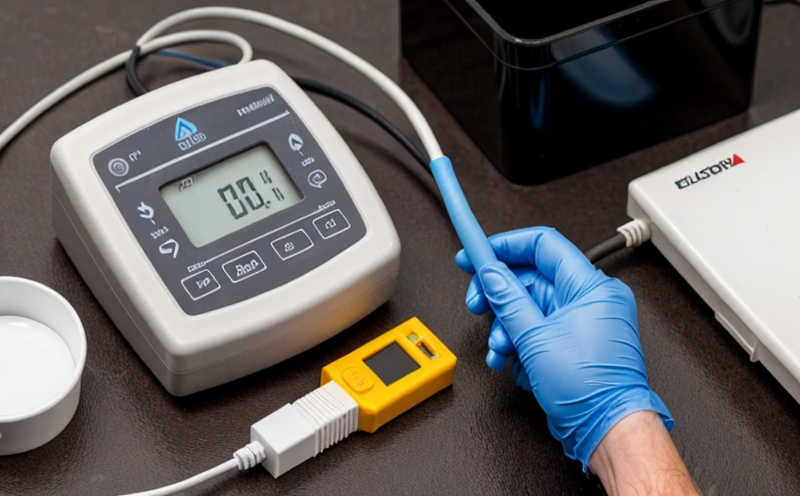ISO 17872 Electrochemical Evaluation of Coatings
The ISO 17872 standard provides a comprehensive method for evaluating the corrosion resistance and protective properties of coatings. This electrochemical evaluation is particularly important in sectors such as manufacturing, aerospace, automotive, and marine industries where the integrity and longevity of coatings are critical to ensuring product performance and safety.
The standard outlines procedures that measure the effectiveness of various types of coatings by exposing them to corrosive environments or aggressive media. This method assesses not only the immediate resistance but also the long-term durability of the coating, which is crucial for industries dealing with harsh environmental conditions.
One key aspect of ISO 17872 is its focus on real-world simulation. By using controlled exposure to corrosive elements like saltwater, acids, and alkalis, this standard provides insights into how coatings will perform under actual operational conditions. This approach ensures that the results are not just laboratory-based but can be directly applicable to field performance.
The evaluation process involves a series of steps aimed at understanding both the initial adhesion and the long-term stability of the coating. Specimen preparation is critical, involving precise application techniques to ensure uniformity across all test samples. The standard also emphasizes the importance of consistent environmental control during testing to eliminate variables that could skew results.
Once prepared, specimens undergo electrochemical characterization using specialized equipment designed for such evaluations. This includes potentiostats and various types of probes tailored to different coating materials and substrates. The data collected from these tests is then analyzed to determine the protective effectiveness of the coating against corrosion. Reporting is detailed, providing a clear breakdown of test parameters, results, and interpretations.
The standard's versatility allows it to be applied across various types of coatings including paints, varnishes, primers, and other finishes used in diverse industries. Its applicability extends beyond just ensuring compliance with regulations; it serves as a tool for continuous improvement in coating technology by identifying weak points early.
The process not only helps manufacturers meet regulatory requirements but also aids in enhancing product quality. By adhering to ISO 17872, companies can demonstrate their commitment to sustainable practices and high-quality standards, which is increasingly important as consumers become more aware of environmental impact factors.
This method is particularly valuable for industries where the failure of a coating could lead to significant financial losses or even safety hazards. Regular testing ensures that products meet stringent quality benchmarks, thereby reducing risks associated with material degradation and extending product lifespans.
Why It Matters
The importance of ISO 17872 cannot be overstated in industries where the integrity of coatings is paramount. This electrochemical evaluation method ensures that protective layers perform as expected under real-world conditions, which is crucial for maintaining product reliability and safety.
For quality managers and compliance officers, adhering to this standard provides a robust framework for ensuring consistent coating performance across different environments. It helps in identifying potential issues early on, allowing for timely corrective actions before they escalate into larger problems.
R&D engineers benefit greatly from the insights gained through ISO 17872 evaluations as it facilitates innovation by highlighting areas where improvements can be made to current coating technologies. This data-driven approach fosters advancements that enhance both performance and sustainability of coatings.
Procurement teams also find value in this standard since they can use its stringent criteria when selecting suppliers and materials for their projects. By specifying adherence to ISO 17872, these teams ensure that all components used meet the highest industry standards, thus reducing the risk of substandard products being incorporated into final assemblies.
The broader impact extends beyond individual companies; it contributes positively towards overall industry standards by promoting best practices in coating technology. Through widespread adoption and rigorous implementation, ISO 17872 helps drive improvements across all sectors involved with protective coatings.
- Ensures Reliable Performance: By simulating real-world conditions during testing, this standard guarantees that coatings will perform reliably under expected operational stressors.
- Enhances Safety: Properly evaluated coatings are less likely to fail catastrophically in critical applications like aviation or maritime transportation, enhancing overall safety standards.
- Promotes Sustainability: Evaluations conducted according to ISO 17872 encourage the use of environmentally friendly materials and processes, contributing to more sustainable manufacturing practices.





